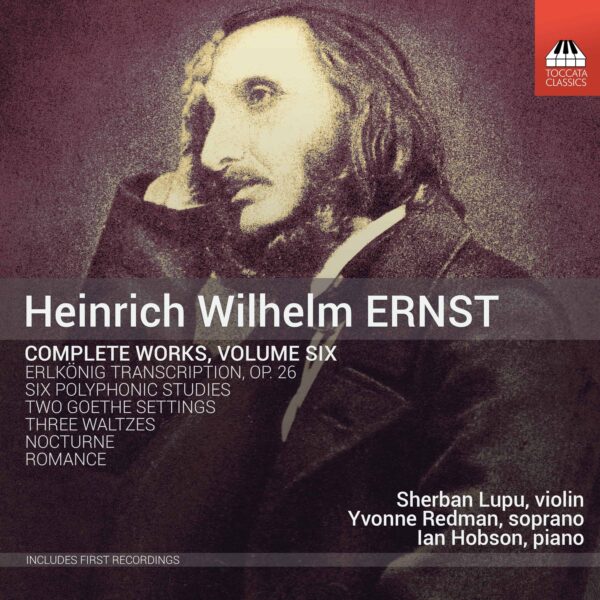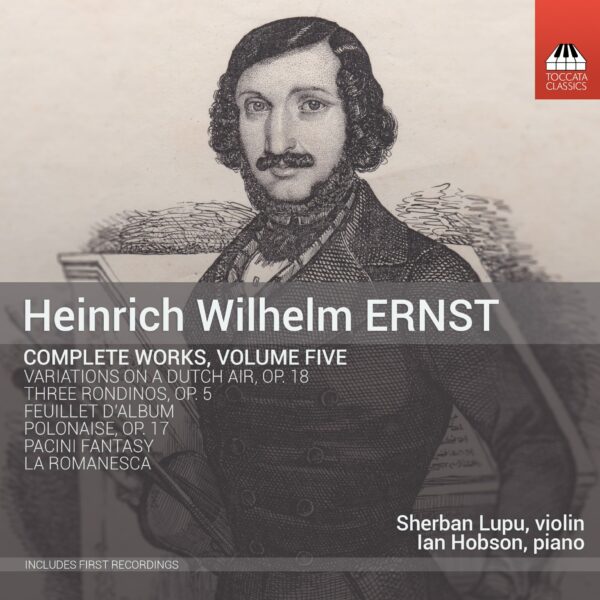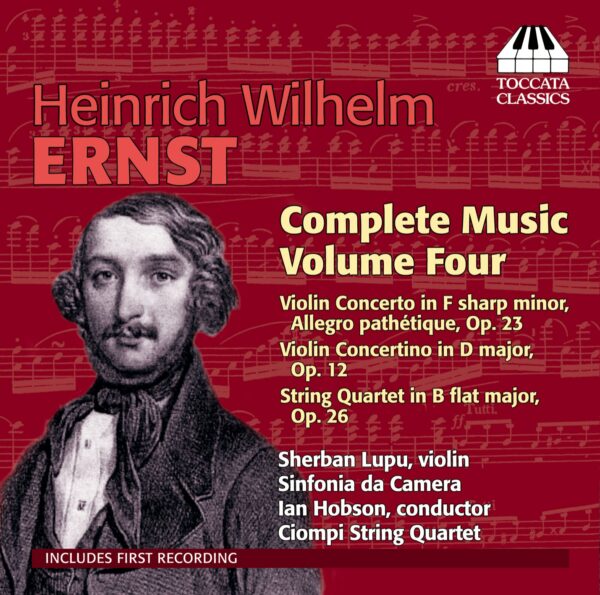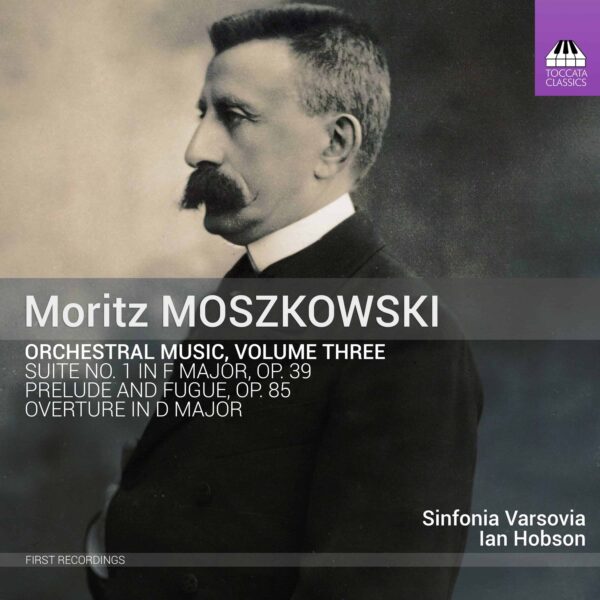Heinrich Wilhelm Ernst: Complete Works, Volume Six
Heinrich Wilhelm Ernst (1812–65) was one of the leading musicians of his day, a friend of Berlioz, Chopin, Liszt and Mendelssohn, and for Joseph Joachim ‘the greatest violinist I ever heard’. This sixth album – in a series of seven presenting all his compositions for the first time – begins and ends with some of the most difficult music for solo violin ever composed: Ernst’s Six Polyphonic Studies and his transcription of Schubert’s song, Der Erlkönig. Between them comes less familiar fare: five Schubertian piano pieces, and two settings of Goethe.
Sherban Lupu, violin Tracks 1-12, 20
Yvonne Redman, soprano Tracks 18-19
Ian Hobson, piano Tracks 13-19
Listen To This Recording:
-
Études pour le Violon à plusieurs parties (Sechs mehrstimmige Studien für Violine. Gruss an Freunde und Kunstbrüder) (1864)
- Étude I
- Étude II
- Étude III
- Étude IV
- Étude V
- Étude VI Einleitung
- Étude VI: Thema
- Étude VI Variation I
- Étude VI Variation II
- Étude VI Variation III
- Étude VI Variation IV
- Étude VI Finale
- No. 1 in A major*
- No. 2 in A flat minor*
- No. 3 in D flat major
- Romanze: An Madam Clara Schuman (1842)*
- Nocturne Posthume in A flat major (1864)*
- Lebet Wohl (before 1843)
- Der Fischer (c. 1830)
- Grand Caprice. Solo pour Violon sur Le Roi des Aulnes de F. Schubert, Op. 26 (1842)
Trois Valses non dansantes pour le Piano-forte (c. 1838)
Two Goethe Settings*
*FIRST RECORDINGS





The Sunday Times :
‘The Toccata label is seeking to represent the whole oeuvre of this little-known but not insignificant composer (1812-65). Here are first recordings of five piano pieces and two Goethe settings, but the framing main attractions are the six Etudes pour le violon à plusieurs parties and the Grand Caprice, for violin solo, on Schubert’s Erlking. The new sophistication to which Ernst brings double-stopping and single-violin polyphony is mesmerising.’
—Paul Driver, The Sunday Times
MusicWeb International :
‘Ian Hobson brings accustomed skill to bear [in three piano waltzes] as he does in the unashamed melodic richness of the 1842 Romanze dedicated to Clara Schumann and in the Nocturne of 1864. […]
Sherban Lupu is an adept practitioner of this repertoire as he has shown time and again in this series and he needs all his skill to surmount the voluminous technical demands of the music, to say nothing of inflecting and characterising the Polyphonic Studies – each dedicated to a violin luminary of the time (including Joachim, Vieuxtemps and Bazzini) – in a way that brings them alive. […]
Ernst’s biographer Mark Rowe is on hand once more to write the excellent and rewarding booklet essay.’
—Jonathan Woolf, MusicWeb International
Fanfare :
‘For those who esteem Ernst as Paganini squared, the performances of the violin music by Sherban Lupu, neither heavy handed nor agglutinated, should be irresistible. And for those to whom an evening of technical wizardry may not be so compelling without having the violinist in the room, the addition of the unknown, more intimate, Ernst, may be the very best kind of introduction to his oeuvre. Urgently recommended.’
—Fanfare